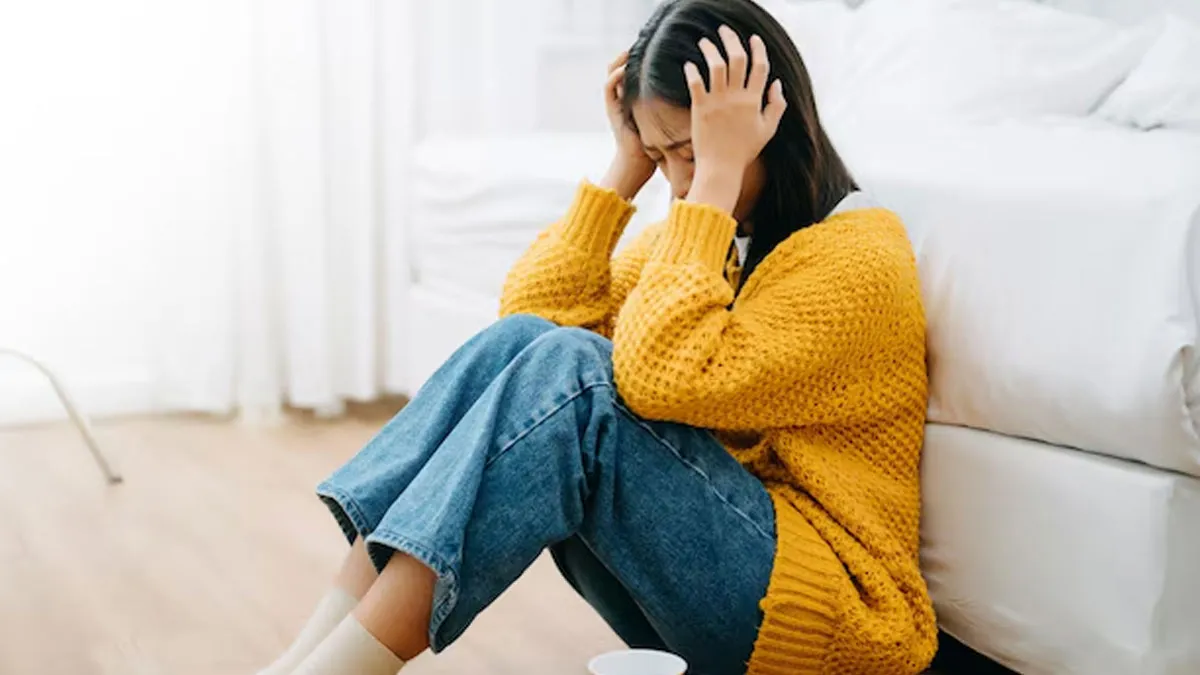
Anxiety can be overwhelming, especially when you’re alone. The quiet moments that are supposed to bring peace can sometimes amplify worries and fears. If you’ve ever found yourself spiraling into anxious thoughts with no one around to offer immediate support, you’re not alone and we have got your back. When it comes to managing anxiety, learning what works for you independently is an important step toward better mental well-being. Read ahead to find out the ideal way to deal with anxiety when you are alone.
Table of Content:-
CHECK YOUR
MENTAL HEALTH

Tips To Deal With Anxiety When You’re Alone
Here’s a practical guide on how to handle anxiety when you’re by yourself:
1. Recognise What You're Feeling
Step one is to accept what you're feeling without judgment. Attempting to push away anxiety usually tends to exacerbate the situation. Instead, tell yourself that anxiety is a normal reaction to stress and that it will pass. Say it aloud if necessary: "I am anxious, but I can manage." Acceptance allows you to transition from panic to problem-solving.
2. Breathe
When you feel anxious, your breathing tends to become shallow and fast. Practice slow, deep breathing to communicate safety to your nervous system. Simple exercise:
- Breathe in for 4 counts
- Hold for 4 counts
- Breathe out for 4 counts
- Hold for 4 counts
Repeat this pattern until you calm down. Controlled breathing slows down your heartbeat and minimises physical symptoms of anxiety.
Also Read: Dietitian Shares 5 Drinks To Lower Cholesterol

3. Connect with Your Senses: Grounding Techniques
Grounding activities can focus your mind in the here and now. You can try the 5-4-3-2-1 trick:
- 5 things you can see
- 4 things you can touch
- 3 things you can hear
- 2 things you can smell
- 1 thing you can taste
This activity breaks the focus from runaway thoughts and into the here and now.
4. Move Your Body
Physical exercise, even small amounts, will rapidly alleviate anxiety. Stretch, walk, jump up and down a few times, or practice yoga. Physical movement releases endorphins that inherently boost mood and lessen tension.
5. Write It Down
Writing is an effective way to work through worrisome thoughts. When you write, you are able to:
- Name your fears
- Monitor patterns
- Cope with irrational thinking
Sometimes putting your concerns down on paper will help them seem less daunting and allow you to gain perspective.

6. Use Technology To Connect
If the anxiety becomes overwhelming, don't hesitate to call someone through a call, a text, or a video call. Even the sound of a friend's voice may be comforting. You can also try meditation and anxiety apps that have guided breathing, mindfulness practices, and calming sounds.
When To Seek Professional Help?
If your anxiety is overwhelming, happens often, or gets in the way of day-to-day life, it's important to see a mental health professional. Therapy, particularly Cognitive Behavioral Therapy (CBT), can deliver long-term strategies for managing anxiety effectively.
Bottomline
Alone doesn't necessarily mean you need to weather anxiety alone. Through effective strategies such as breathing techniques, grounding, and positive distractions, it's possible to wrestle back control of anxious episodes. With repetition and practice, these strategies can establish emotional resilience so that you feel safer and more powerful even when you're alone.
Also watch this video
How we keep this article up to date:
We work with experts and keep a close eye on the latest in health and wellness. Whenever there is a new research or helpful information, we update our articles with accurate and useful advice.
Current Version